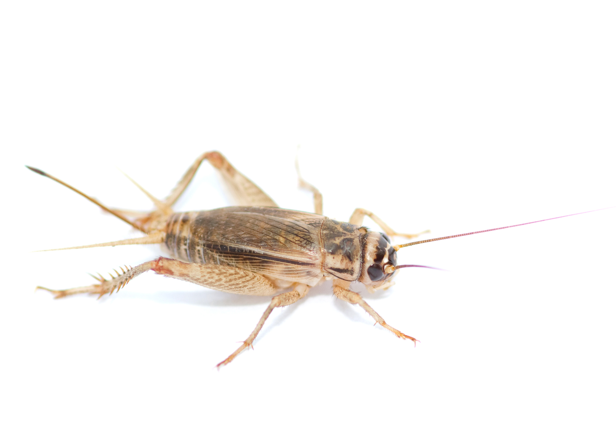FIND YOUR LOCAL
STARK SERVICE CENTER
Acheta domesticus
House crickets are distantly related to grasshoppers and were most likely introduced to the U.S. between 1950 and 2000 when they became the standard feeder insect for the pet and research industries. They are known for their loud chirping which is caused when males rub their front wings together to attract females.

| Color | Light brown with three dark cross bands on the head |
| Legs | 6 |
| Shape | Long and winged with prominent back legs and shorter forelegs |
| Size | 3/4 – 7/8” |
| Antennae | True |
House crickets are nocturnal and usually prefer cool, dark, and damp habitats like the spaces under rocks and inside basements and crawl spaces.
House crickets are fully winged and can fly, unlike some other species of crickets, like the camel cricket. However, house crickets usually prefer to crawl or hop, using their prominent hind legs for power.
House crickets are omnivores. In nature, house crickets eat rotting leaves, rotting fruit, vegetables, and insects. Once inside a home or other building, house crickets will feed on a variety of fabrics and wallpaper glue. House crickets prefer fabrics made of natural fibers like wool and silk.
If you’ve spotted house crickets inside your home, get help from the professionals at Stark Exterminators using the form below.
After you submit the information below, a trained professional in your area will get in touch within 1-2 business days to set up a date & time that is convenient for you.